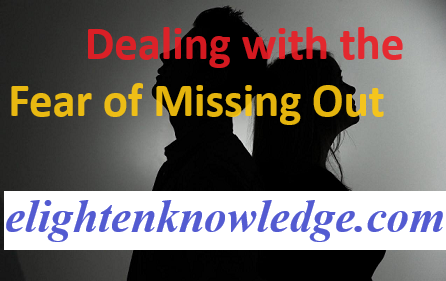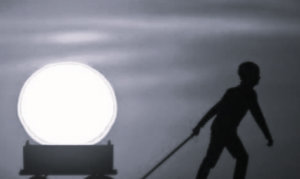How to Deal with the Fear of Missing Out

Many of us experience it daily
I was not invited to a wedding, birthday, celebration, or holiday, and even did not get to watch a television show I liked.
The list can go on
Fear of missing out is defined as a pervasive apprehension that others might be having a rewarding experience from which one is absent and is ‘characterized by the desire to stay continually connected with what others are doing.
We are social beings.
- We want to interact with others.
- However, when the goalposts of interaction to feel acceptance change to unattainable levels, i.e., comparing our every interaction to others on social media, we can start developing symptoms of anxiety and depression.
- This can have longer-lasting effects as comparing our whole life to someone’s highlight reel can affect our self-esteem.
- Here are some strategies to employ in dealing with the fear of missing out;
Spend more time looking at our lives than at those of others
- It’s impossible to stop comparing completely.
- As previously mentioned, we are in a world governed by duality good and bad, right and wrong, rich and poor.
- Yet, we can start making small shifts in our mindsets to focus more on our own lives than those of others.
- As the famous quote goes, ‘To become satisfied, we don’t have to increase the things we have; we need to increase the focus on the things we do have.
- The choice is yours.
- Jealousy is counting other people’s blessings rather than our own.
- Do we want to be resentful of what we are missing?
- Do we want to be envious that others are enjoying what we don’t have?
- Or do we want to invest in what we do have and create our happy experiences?
You cannot have it all: learn to be present
- Another principle of not succumbing to the fear of missing out is understanding that you cannot have it all.
- If there was one word that defines the world, we live in its ‘scarce’.
- Resources are scarce, relationships can be scarce and importantly, time is scarce.
- Because time is scarce, it is important to learn its value and realize that it’s a fact of life: we cannot have it all.
- When we choose to attend one event, we give up going to another.
- That is why it is important to learn how to be present.
- I know this may sound like a cliché similar to ‘being in the moment’, ‘the power of now’, and ‘learning to live without thinking of the future’.
- However, this is a state of mind that has to be learned over time.
- If we can learn to enjoy being in the present, the fear of missing out will not be able to hurt us.
- Rather than looking at what we cannot do or what we do not have, it is important to be grateful for what we can do and what we do have.
- We live in a world of duality: everything has its flip side, but if we can live in a state of gratitude, we can accommodate both.
Look beyond immediate pleasures and excitement
- It is a common fact that after a certain level of income, the link between the amount of income and our happiness is broken.
- After all our amenities and comforts are taken care of, our happiness is no longer dependent on our income, but on other factors.
- What this implies is that it is great to have a good cup and work hard for it, but let us not forget the coffee inside.
- Focusing too much on what type of vessel we have for our beverage is detrimental to our mental well-being.
- It is much better to work on the type of coffee we have our relationships, spirituality, and purpose over the cup our facilities, material objects, and our surroundings.
- This is not to say we will not miss out on experiences when we are absent for an event like a party or holiday.
- But by looking beyond external pleasures and by finding inner fulfillment in the meaningful things in life, the fear of missing out will seem secondary.
- When we have something better, it is easy to let go.
Having comfort is not bad.
- It certainly adds value to our lives and, depending on our position, at times it may be needed.
- However, if the focus is on what we don’t have, it takes away value from what we do have.
- Happiness is not just about having more, but also about focusing more on what we do have.
- This mindset is the key to crafting joy; the opposite of that is comparison, which is the thief of joy.
- We may not have the perfect house, but we can try to make it a happy home.
- We may not have the perfect relationship, but we can make it a happy relationship.
- We may not have the perfect moment, but we can make it a happy moment.
- The choice is always ours.
- In striving to always have, don’t forget to just be.
The problem is that the nature of the mind is to always look at what’s missing.
- The mind always wants to protect us.
- It sees what is missing and thus can help us avoid danger or get geared up for a fight.
- However, in our modern society, this ‘missing syndrome’ is leading to a mental health calamity as we have constant access to compare our lives with those of others.
- From an early age, we are told by our parents, ‘Look at your sibling, or friend see how well-behaved they are’ or ‘Mr. Patel’s son got 98 percent in the exam, why did you get only 90 percent?’
- This influence from our parents to motivate us to do better could have a darker consequence of conditioning us to compare ourselves with others.
- That is not to say we should blame our parents; they were taught the same thing by their parents.
- It’s natural to compare ourselves and seek inspiration from others, but unnatural to lose our own identity to be like them.
- Unfortunately, the comparison is a sly creature and moves insidiously.
- We may not even realize that we are doing it subconsciously and over time, this builds up to a compulsive habit.
Join us for more through this link
https://chat.whatsapp.com/Bt7QvtyljSPHCa7y17zLYP








